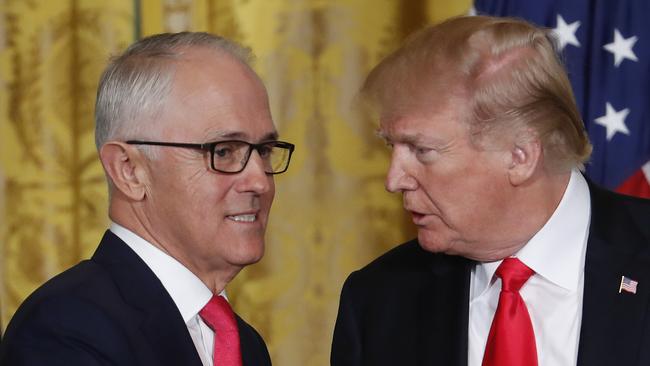
Malcolm Turnbull and his people were clearly alerted that a big rise in US steel tariffs was looming and so worked on Donald Trump in front of witnesses to gain an assurance of an Australian exemption.
If we keep pressing our case my guess is we will succeed because Australia’s BlueScope sends steel to the US to be rolled and is a major employer of US labour in this process.
But there can be no exemptions until the two main games are sorted out--- NAFTA and Europe.
Donald Trump came to power on the back of a promise to renegotiate NAFTA. While there is no doubt NAFTA benefited the US, like so many of these trade deals parts of the US were badly mauled and they voted Trump to power because of his promises.
But the NAFTA negotiations have stalled and soon there will be the problem of the Mexican elections. But now the Mexican and Canadian negotiators know that there is some stick coming via tariffs or other measures if a deal is not reached--- much to the joy of the people who voted Trump to power.
When you are negotiating with your closest neighbours and trying to get them to give up what you perceive is an unfair advantage those talks are top of mind. Australia is not.
A key part of the NAFTA negotiation is the way the auto industry is treated and that is also a major part of the game in Europe.
It is outrageous that cars built in the US face a 10 per cent tariff when they enter Europe while European cars going to the US face only a 2.5 per cent tariff.
As soon as the EU started to threaten America with retaliation over steel Trump brought up the question of the differential tariff in cars.
Now, of course, it is much more complex because European carmakers are major investors in the US and have large plants there. Indeed because of the parts swapping, the question of where a car actually comes from is often hard to determine.
Australia’s job is to quietly keep pushing the defence alliance and how we can be part of the US minerals shield, but don’t get caught in the crossfire while these heady negotiations are taking place.
My fear is that at a time when the US shows clear signs of overstimulation, tariffs will further boost inflation and interest rates and send the US into a downturn. We will be affected by the higher interest rates and the fall in global growth.
And we also must be ready for the next round of trade disputes, which are likely to be about intellectual property and China.
China has skilfully kept out of the current tariff debate because it knows what is coming.
Again, Australia should be more concerned about the looming US/China wrangle than a trade war based on steel tariffs.
The difficulty with the IP wrangle is that whereas in tariffs on manufacturing we are dealing with defence allies (and Europe is very dependent on the US), in the case of IP, China and the US are hostile towards each other over the South China Sea.
Meanwhile China has announced future cuts in its steel output. Much of the reduction is related to changing Chinese demand and environmental issues and will often be at the cost of locally-sourced iron ore.
However it will dampen overall iron ore demand at a time when Brazil’s Vale is bringing increased tonnage into production.






The good news for Australia is that we are tuned into at least part of the decision-making process in the Trump presidency.